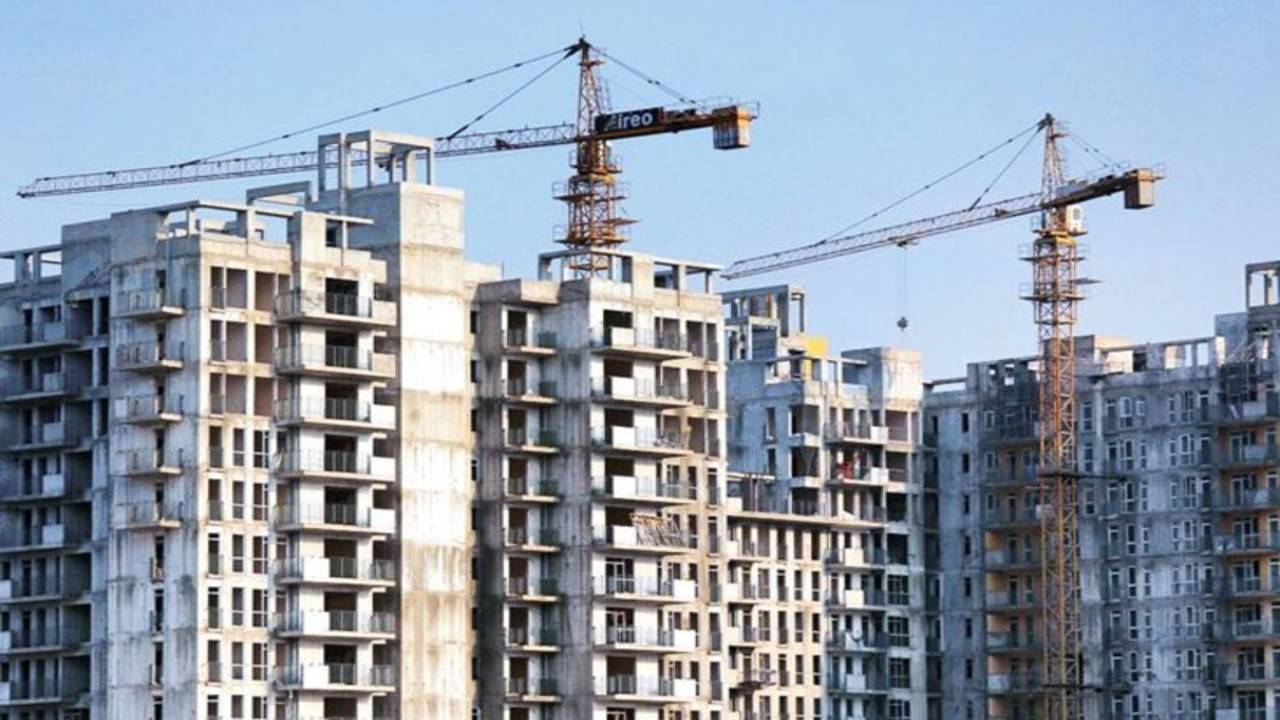Foreign Inflows Into Indian Real Estate Tripled Up To 26%,Note These Positive Changes
Foreign inflows to Indian real estate sector has increased three fold up to 26% ,Collier also mentioned India as a high on investor agenda report

The Indian real estate sector has witnessed a massive inflow of foreign investments in recent years, making it one of the most lucrative investment destinations in Asia. According to recent data released by the Ministry of Commerce and Industry, foreign inflows into the Indian real estate sector have risen to $ 26.6 billion. This is an impressive figure that not only showcases foreign investors’ hunger for exposure to the Indian economy but also highlights the potential of India’s real estate sector, it is important to examine the reasons behind the increasing foreign inflows to Indian real estate and evaluate whether this trend is beneficial for the Indian economy.

Reasons behind Foreign Inflows:
All this was possible when the industry had a makeover by implementing transparency, relaxation in business operations, and introduction of better policies which establishes a business-friendly environment for foreign investors.
There are several reasons why foreign investors are attracted to India’s real estate sector. Firstly, India is a developing country, with a growing population and a rising middle class. As a result, demand for housing, commercial spaces, and other real estate assets is increasing rapidly. This presents a significant opportunity for foreign investors looking to tap into a growing market with high potential returns.
Secondly, the Indian government has implemented several policy changes over the years to make the country a more attractive destination for foreign investments. One such change was the liberalization of foreign direct investment (FDI) rules in 2005. Since then, there has been a substantial increase in FDI inflows across various sectors, including real estate.
Moreover, in 2019, the central government further relaxed FDI norms applicable to the construction development sector. The changes allowed 100% FDI under the automatic route in completed projects for operation and management. This aims to create more investment opportunities in the country’s real estate sector.
Also, India has been performing creditably on the Ease of Doing Business Index, which reflects efforts made by the Government to simplify procedures, reduce the burden and ameliorate the business environment. A favorable business environment provides foreign investors with confidence that their investments would not be subject to red tape or regulatory challenges.
Finally, India is a rapidly developing country with an aspiring young middle class looking to invest in property. As urbanization increases and the middle class expands, demand for real estate assets is expected to rise further, providing investors with a lucrative market in the coming years.

Benefits of Foreign Inflows to the Indian Real Estate Sector:
According to a survey, India has emerged as a top investment destination in APAC since Indian cities provide higher yields than other cities in the area at relatively cheaper price points. Mumbai has the highest industrial asset yields in the area, whereas Bengaluru has the highest office yields.
Foreign investments in industrial assets have been increasing as well; during the 2017–22 period, they made about 87% of all investments in industrial and warehousing. As long as economic headwinds persist, however, Colliers mentioned that they anticipate overall demand to see some moderation during 2023 in certain sectors, such as the commercial office segment, affordable and mid-housing, etc.

There are several benefits of foreign inflows to the Indian real estate sector. Firstly, it attracts much-needed capital into the sector, allowing developers to fund construction projects and create new residential and commercial spaces. This not only benefits the real estate industry but also the overall economy, as it generates employment opportunities and drives economic growth.
Secondly, foreign investments bring in new technologies and management practices that can help improve the efficiency and productivity of the sector. This helps Indian developers to learn new and innovative ways of doing things, from project planning to managing people and resources.
Thirdly, foreign investments contribute to improving the standard of living across the country as they incentivize developers to build better-quality housing at affordable prices. This is particularly crucial in a developing country like India, where access to affordable housing remains a significant challenge.
Lastly, foreign investments in the Indian real estate sector help in increasing the transparency and accountability of the sector. Investors bring with them standards and regulations that demand a level of financial discipline and transparency not typically seen in the Indian economy and, thus raising the ethical benchmarks for the industry.
Despite some criticisms, foreign inflows to the Indian real estate sector have the potential to create significant economic growth through new construction projects, employment creation, and improving living standards while introducing best practices in ethical business operations. The Indian Government has provided policy support to enhance the investment climate in the real estate sector. Developing a self-regulatory framework, tapping into the right potential, and promoting transparency would go a long way in maximizing the benefits of foreign investments. It is expected that foreign investment will remain an important source of funding to further propel the industry’s growth forecasts and needs.
Proofread & Published By Naveenika Chauhan






